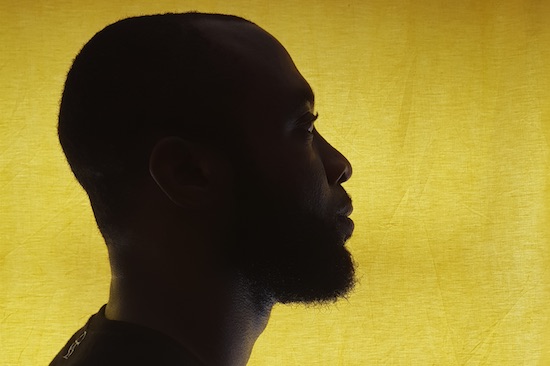Home can be found in the riff of an electric guitar. Such as in late Rev. Patty Obassey’s pious highlife songs, collected in Ezi Nwanyi Di Uko, an album of his my family owned when I was a teenager.
The chorus of the title song admonishes the faithful: a good woman is hard to find; she is more expensive than rubies. He’s singing in Igbo. That was the first thing that endeared me, songs in a language I understood when spoken in measured pace. Many words were foreign to me; his Igbo seemed older than my parents’. His melodious missives were like knotty parables, peddling the wisdom of virtue over vice, the commonsense logic of Christianity. In the hour after our family devotion, every morning while I swept the living room and kitchen in Ile-Ife, I carried out my chores in tandem to the lick of his guitar. This was the melody of home I thought about while writing A Stranger’s Pose, which is amongst other things, a meditation on being without a home.
Then I left my family, and began to write about being elsewhere. I moved first to Lagos, “the shining and perishing dream itself,” as Joan Didion would have called it as she did of New York City if she visited, considering its irrepressible mix of grit and glam—“bright moments,” the artist formerly known as Mos Def sings, that “always come back vivid.”
Before I listened to “Life in Marvellous Times,” I was taken by Yasiin Bey’s collaboration with the Brooklyn Philharmonic. Those were my Lagos vibes on repeat, and the truth I harked back to during the stretch of months between trips, when I wondered what was next, or if I could retain some of the energy I had returned with: the slow tenacity of Accra, the silent indifference of Yaoundé or Rabat, the diffuse pulsations of Abidjan. The longest melody in Bey’s collaboration is “Coming Together,” originally composed by Frederic Rzewski, based on a letter by an inmate who died at the Attica Prison Riots, in Attica, New York, written six months prior. Towards the end of the eighteen-minute song the violinists increase pressure on their strings, nearly drowning out Bey’s voice when he says loudly “…feeling for the inevitable direction of my life!” I snuck that declaration into my heart like a talisman thrown in the corner of a portmanteau.
Music is so, a way to traverse the dense terrain of untranslatable sensations. But first it is a gift. I think now of Oumou Sangaré. In the month I spent in Sinthian, a village in Senegal many Senegalese knew nothing of, I hoped to finish a draft of my book. The days were regimented: rising early to work, but keeping the rest of the day unscheduled. I loved the villagers, since they seemed to welcome me without guile. One evening I chanced on a group of men and women humming along to Sangaré, forming a half-circle around a radio. Neither of us understood the lyrics; she sings in Bambara. And since I didn’t understand their local tongue either, when they spoke in Pulaar or Wolof or Serer, we found compromise in the regal sonority of the Malian queen, our affinity unhampered by language. It might have been a song from her eponymous 1990 debut, Oumou, something with the ruefulness of a dirge in it, perhaps “Djorolen.”
When I met with Binyavanga Wainaina during one of my visits to Dakar I believe his itinerary included an interview with Youssou N’dour. At the beginning of the essay he later wrote – with a title so apt it moves me to tears, “It’s Only a Matter of Acceleration Now” – he “imagines a Kenyanish history” of the celebrated musician whose “mother came from a family of griots of griots.” One could indeed imagine N’dour’s music as worldly in the way the praise singing of griots hoped to be; he has brought the world to mbalax. “Birima” remains my favourite. It is not his most soulful (one would look to songs in I Bring What I Love.) But those first fifteen seconds, when the kora sounds as if all its frets were touched at once, makes me “…determined to raise the earth to the string,” as Wainaina reflects. I wrote from the vantage of a polyrhythmic world.
And a polyphonic world. In most of my journeys I was in a group, as a participant of road trips organised by the artist-led Invisible Borders project. The voices of fellow travelers, their dissentions and revelry, ululations and mellow-speak, is without doubt the sonic underlay of my book, A Stranger’s Pose. Of course there was dancing. “How the body dancing, finds reprieve,” I write, referring to a particular moment in Nouakchott when Yemi Alade’s “Johnny” was played from one of our phones. It was a cosmopolitan season for Nigerian pop music (and still is), the big year for Don Jazzy’s Mavin Records, spurred by “Dorobucci”; the decisive turn in WizKid’s global reach, when he bellows, with conviction and swag, “ni Ojuelegba o, they know my story…” I know that story. To put it in simple terms, as pop music requires, it is a tale of aspiration.
The body hopes for reprieve when it learns a viral dance sequence. Before Shaku Shaku there was Azonto, and before that Galala. I am a so-called terrible dancer, never managing to impress my friends and family, even though I am convinced by my moves (I hold dear a memory of being in a club in N’djamena and a man saying to my colleague in French how good my dancing was). But I aspire, and I believe I have a modicum of success in my attempt, to look at my dancing friends with an eye for beauty. It is what I look for in good writing, felt beauty. Consider Fela Anikulapo-Kuti’s incomparable music.
I’m inclined to ask dedicated Felasophers what song they love best, since we encounter him in individual ways. Mine, “Teacher Don’t Teach Me Nonsense,” teaches me what prose can do within a stretch of layered composition. You could say this of any song in his oeuvre. Yet it was impossible for me to hear him say at the beginning, “Let’s get down to the underground spiritual game…” without reflecting on my attraction to the subterranean and liminal, undercurrents I hope runs through my work.
Emmanuel Iduma is the author of A Stranger’s Pose, a book of travel stories, forthcoming from Cassava Republic Press



